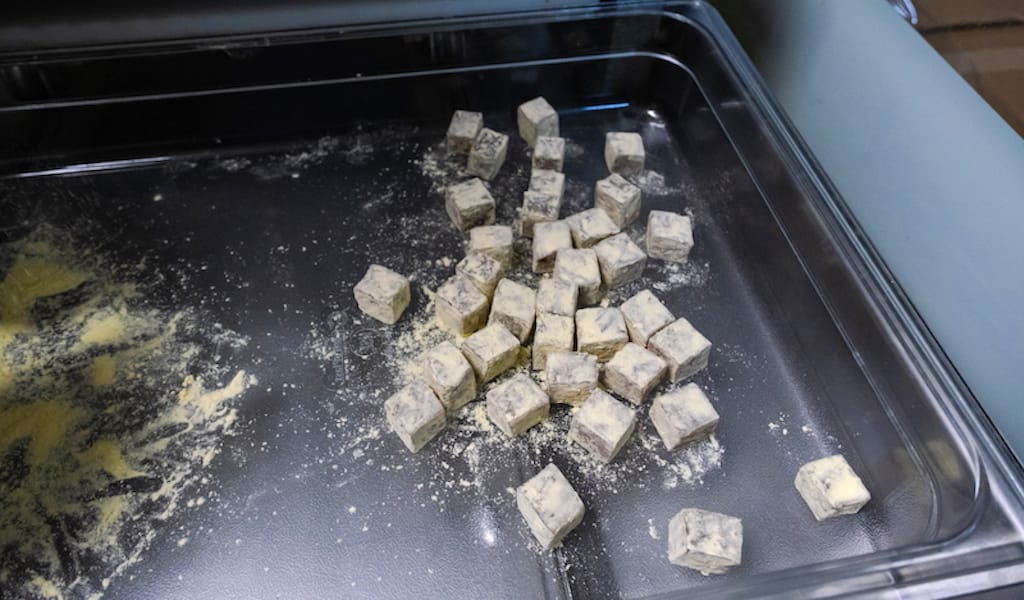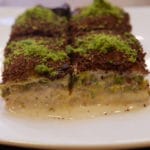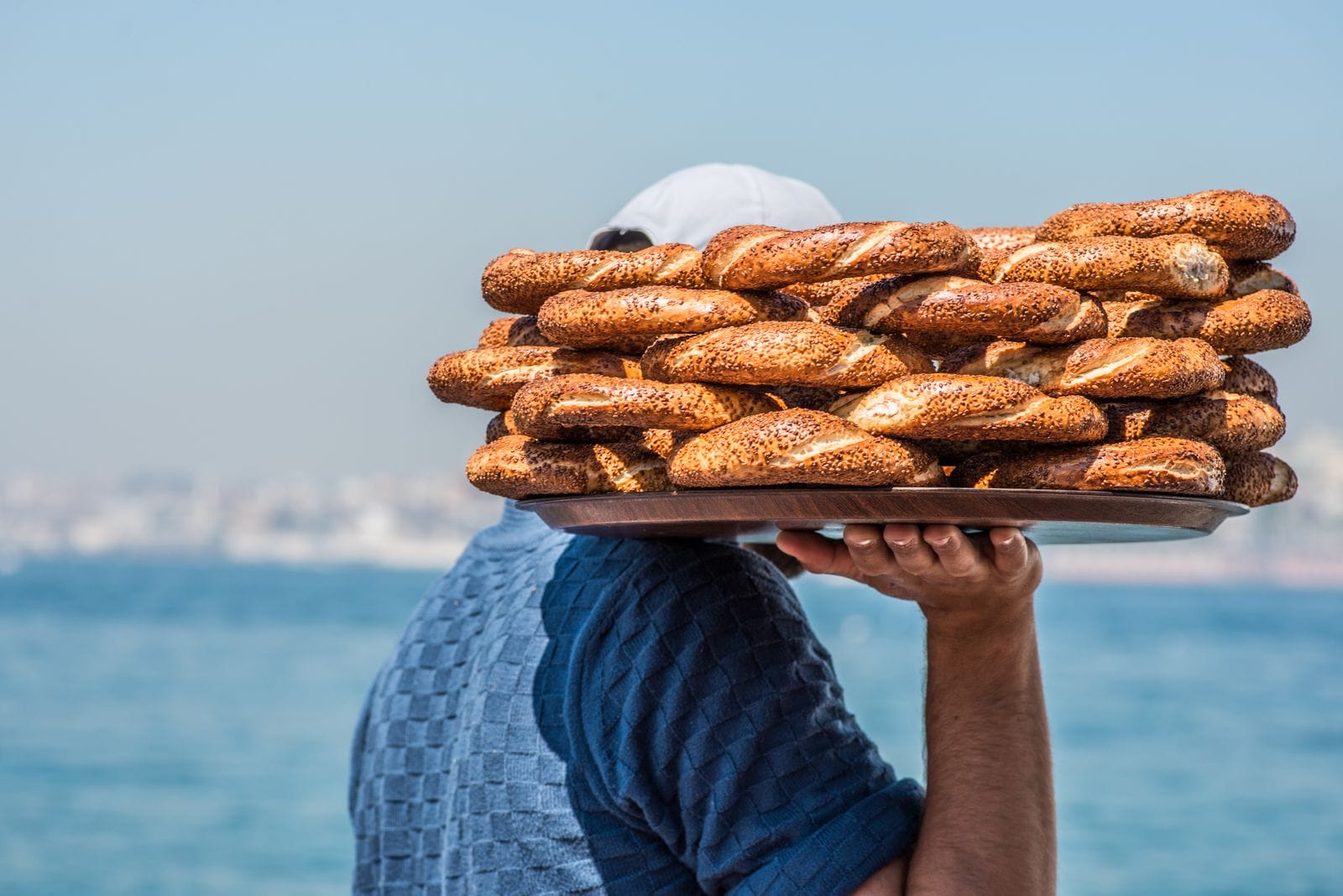From syrup-drenched baklava to creamy milk puddings, Turkey has no shortage of sweet treats. But perhaps none have intrigued foreign visitors to Turkey as much as Turkish delight.
Lokum is famous in the English-speaking world as the enchanted confection that entices Edmund to join the White Witch in The Lion, the Witch, and the Wardrobe, but in reality, the sticky sweet has been enchanting audiences since it was first developed in the early 1800s. Dubbed “Turkish delight” by English traders, lokum inspired a wave of imitators across Europe.
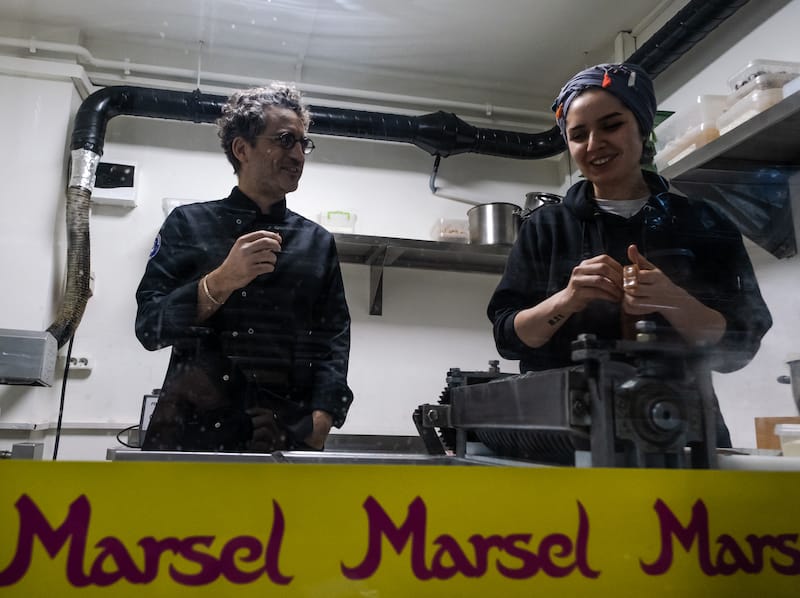
“Lokum predates gummy sweets – gummy sweets were made trying to replicate Turkish delight. They didn’t know the secret ingredient, which is to manage the pH level,” says Selim Cenkel, founder and usta at Marsel Delights.
“I want to take Levantine sweets – to take the whole category – and put my spin on it,” Selim says. “Make it more contemporary.”
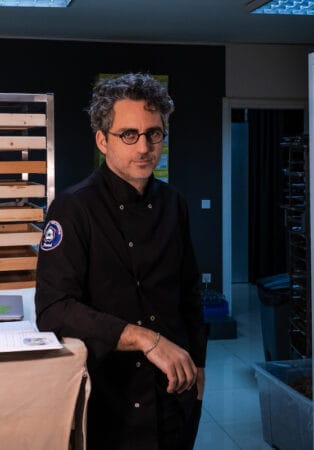
With tousled curls of salt-and-pepper hair and distinctive round-framed glasses, Selim looks the part of a theoretical physicist rather than a pastry chef. But the mad-scientist persona is perhaps an apt description for Selim’s unconventional if not idiosyncratic approach to flavor combinations. His flavor pairings include mastika with mulberry, pomegranate with cumin, and sour cherry with almond and cinnamon. The combination of acidity, sweetness, and spice, held together by that elusive elastic texture, creates a complex and tantalizing taste experience.
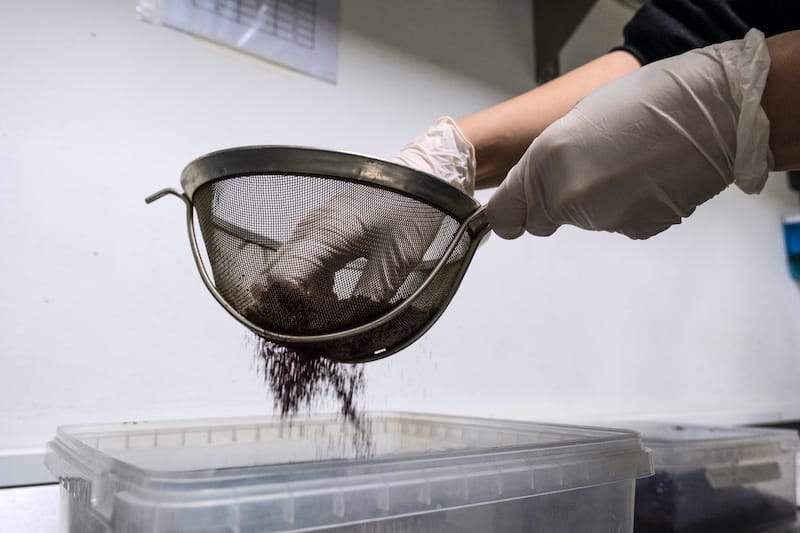
“I get inspired from different areas of Turkish cuisine – from pastry, ice cream, cevizli sucuk [a candy popular in Turkey and Georgia made from walnuts, grape juice and flour], ” he says. Even with classic lokum flavors , Selim finds a way to put his own twist on it. “I use lemon with pistachios. Anybody can make pistachio lokum. This is a little more avant garde,” he says.
Selim also finds inspiration from childhood memories growing up in Istanbul’s Sephardic community.
“On Büyükada, we used to go to this patisserie, they made a cookie with a lokum inside – sort of an empanada. Like a Sephardic take on a traditional Turkish delight,” says Selim. Even Marsel Delight’s name, taken from Selim’s grandfather, is a tribute to Istanbul’s often-hidden minority communities. “Istanbul has so many multicultural backgrounds,” Selim says, pointing to the fact that for centuries Sephardic merchants introduced new goods to the Ottoman Empire and, later, the Republic of Turkey. “This intrigues me. I want to put this idea at the heart of the brand.”
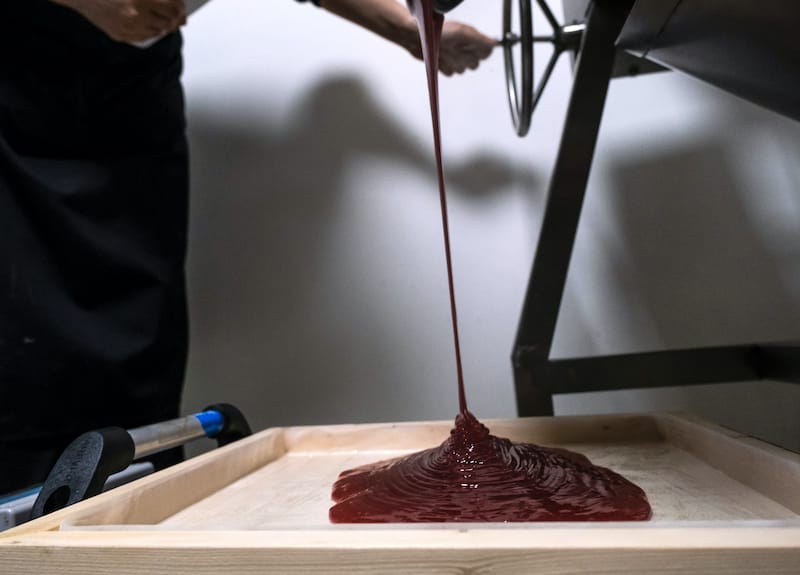
Although Selim credits his Sephardic community for his curiosity and entrepreneurial drive, he admits he approaches lokum as an outsider. Most legacy lokum brands in Turkey are family-owned businesses and notoriously secretive about their process.
When first learning how to make lokum, the texture also proved the hardest part to master for Selim. “I started from a very personal, naive point of view,” he said. “It was a lot of trial and error.” After struggling to capture the elusive perfect texture, Selim sought advice from seasoned lokum experts.
The veteran lokum makers recommended making the mixture more acidic. “Each recipe creates a different chemistry and you have to anticipate that,” Selim says. “I calculate volume, pH, saturation and brix levels.”
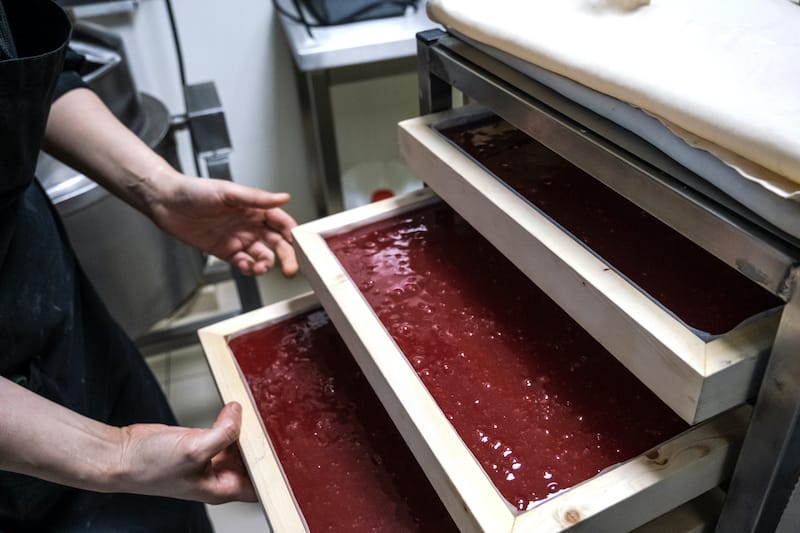
Currently, Selim and a small team are making Marsel’s lokum at Maide Mutfak, a sort of coworking commercial kitchen in the backstreets of Şişli. Selim’s technical approach has produced lokum with a light, springy texture, but his avant garde flavors have elicited a range of reactions.
“When you play with tradition, it’s a double edged sword,” Selim says. “We respect the tradition but this is our take.” For the fans of traditional Turkish delight, the reception has been mixed. “They don’t take it well. They’re like ‘don’t touch my traditional lokum’,” he says. But Selim is less interested in disrupting legacy Turkish delight companies than he is introducing lokum to new audiences.
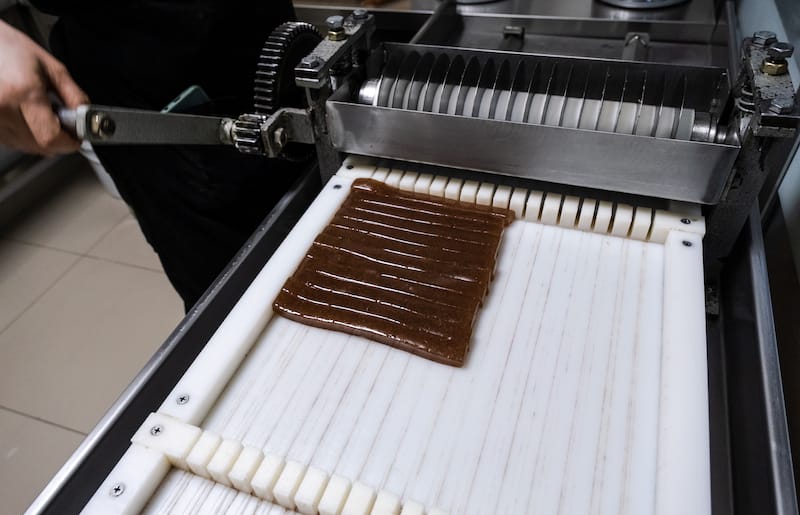
“As a generation, we’ve wiped out lokum consumption,” he says. “No one buys lokum. They only eat it at bayram (religious holidays) in their family’s homes.” In contrast, Marsel Turkish delights has taken lokum to a more contemporary audience. In addition to the webstore, their fares can be found around Istanbul in third wave coffee shops like Kronotrop, menswear boutiques like Bey and esteemed restaurants like Pandeli.
A big draw for many younger consumers is Marsel’s approach to ingredients. Marsel Turkish delights are all-natural, gluten-free and only sweetened with unrefined sugars. “The main reason I use apple sugar is that it’s unrefined. Since it’s from fruit, it’s only fructose. It takes longer to metabolize,” says Selim. “I wanted to use less [sugar], in terms of taste perception.” Traditional lokum can be cloyingly sweet and dusted with powdered sugar, but Marsel opts to use different ingredients to coat his lokum, including spices and dehydrated fruits.
“When you play with tradition, it’s a double edge sword,” Selim says. “We respect the tradition, but this is our take.”
For an exclusive flavor developed for Pandeli – a legendary Istanbul restaurant located on the second floor of the Spice Bazaar – Selim opted to dust the lokum in dried powdered apple. “I thought: ‘Let’s create a flavor that gets its inspiration from the Spice Bazaar,’” he says. “Clove, cinnamon and walnuts paired with dried apple powder around the lokum. It’s on the more traditional side. I think it plays well with the traditional setting of the restaurant.” The exclusive flavor is wrapped in a special package inspired by the restaurant’s iconic turquoise tiles.
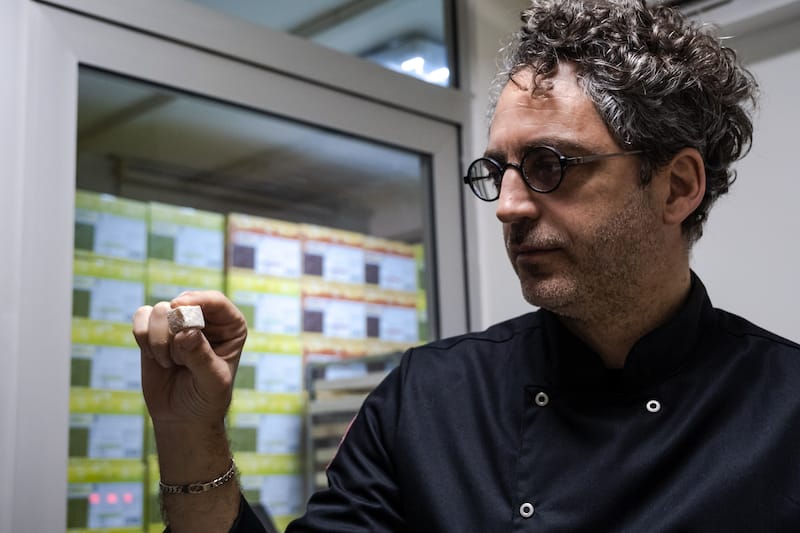
Selim has also collaborated with specialty coffee roaster Kronotrop to make a coffee-infused Lokum, and is now developing a rakı-inspired flavor for Karaköy Lokantası. “In Turkish cuisine, food is a celebration. It’s a social event. It’s not something individualistic. It’s celebrated with rituals, good conversations, and company,” he says. “How does this ritual play into people’s consumption? It’s something they savor and enjoy when they slow down a bit.”
Although traditionalists might question whether 200 years of Lokum tradition needed updating, for Selim, his lokum is an expression of his own identity.
“We are a product of this world: a synthesis of the different cultures of the east,” he says.
“It’s coming from me. Coming from who I am. This was the only logical angle I could find.”
Michael ButterworthGökhan Çelem
Published on May 23, 2022
Related stories
November 10, 2021
IstanbulIstanbul's dessert culture mirrors the richness of its broader culinary diversity and depth, and the city is home to numerous classic establishments that have essentially perfected favorite Turkish sweets. There’s Özkonak’s tavuk göğsü, a dense, thick pudding made with shredded chicken breast and topped with cinnamon, and Mahir Lokantası’s irmik helvası, a subtly sweet mound…
February 28, 2024
Food Tours NDQuick Bite: This full-day Istanbul market tour draws from our best-of list in the European side’s Karaköy neighborhood and the Asian Kadıköy, tied together by a Bosphorus crossing, visiting two markets on two continents. Our favorite Istanbul experiences include exploring the eateries in local markets and crossing the Bosphorus on the public ferry. The route for…
June 20, 2022
IstanbulWhen a tiny three-table restaurant has but a single item on its nonexistent menu that it has served for nearly three quarters of a century, one steps in the door with high expectations and an enthusiastic appetite. These will be met and exceeded at Tarihi Odabaşı, a hole-in-the-wall in the heart of old Istanbul that…







































